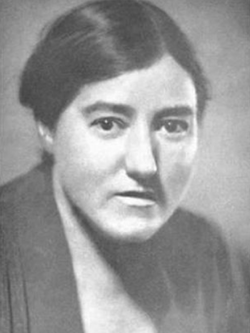
Mabel Elliott
Finally leaving the list of unsung women is spy catcher Mabel Elliott, previously only cited as an unknown heroine. Mabel Elliott’s name and achievements have recently been uncovered in the Royal Society of Chemistry archives.
In 1915 Elliott found messages were being sent undercover by a German agent. Elliott gave evidence under the name Maud Phillips protect her identity. The need for a different name when dealing with such espionage contributed to Mabel Elliott’s continued anonymity and lack of recognition until the archive finding.
Fluent in German and Dutch, Elliott worked for the War Ministry in London as a censor of letters. It was Elliott who intercepted the letter sent to Holland that revealed a spy network. The letters detailed British shipping and troop movements and were written by the German spy, Anton Kuepferle. Kuepferle had based himself in Liverpool under the pretence he was an American citizen.
In 1915 Elliott found messages were being sent undercover by a German agent. Elliott gave evidence under the name Maud Phillips protect her identity. The need for a different name when dealing with such espionage contributed to Mabel Elliott’s continued anonymity and lack of recognition until the archive finding.
Fluent in German and Dutch, Elliott worked for the War Ministry in London as a censor of letters. It was Elliott who intercepted the letter sent to Holland that revealed a spy network. The letters detailed British shipping and troop movements and were written by the German spy, Anton Kuepferle. Kuepferle had based himself in Liverpool under the pretence he was an American citizen.
However, Kuepferle’s letters were found by Elliott to contain messages in invisible ink. These were written in lemon juice. I knew it wasn’t just Fatty in Enid Blyton’s The Five Find-Outers (although I am the only person to have read that book) who used lemon juice as an organic invisible ink.
Kuepferle was captured but later hanged himself in his cell, apparently leaving a written confession that he was a German Officer.
After the First World War Elliott was employed by the Royal Society of Chemistry, until her retirement in 1937. During the Second World War Mabel Elliott worked as an interpreter and trained as a nurse with the Red Cross.
The Royal Society of Chemistry hopes to find out more about Mabel Elliott in time for Remembrance Day.
Kate
Related Posts
Madame Curie's 144th Birthday
Invisible Ink comes Alive
Kuepferle was captured but later hanged himself in his cell, apparently leaving a written confession that he was a German Officer.
After the First World War Elliott was employed by the Royal Society of Chemistry, until her retirement in 1937. During the Second World War Mabel Elliott worked as an interpreter and trained as a nurse with the Red Cross.
The Royal Society of Chemistry hopes to find out more about Mabel Elliott in time for Remembrance Day.
Kate
Related Posts
Madame Curie's 144th Birthday
Invisible Ink comes Alive
 RSS Feed
RSS Feed
